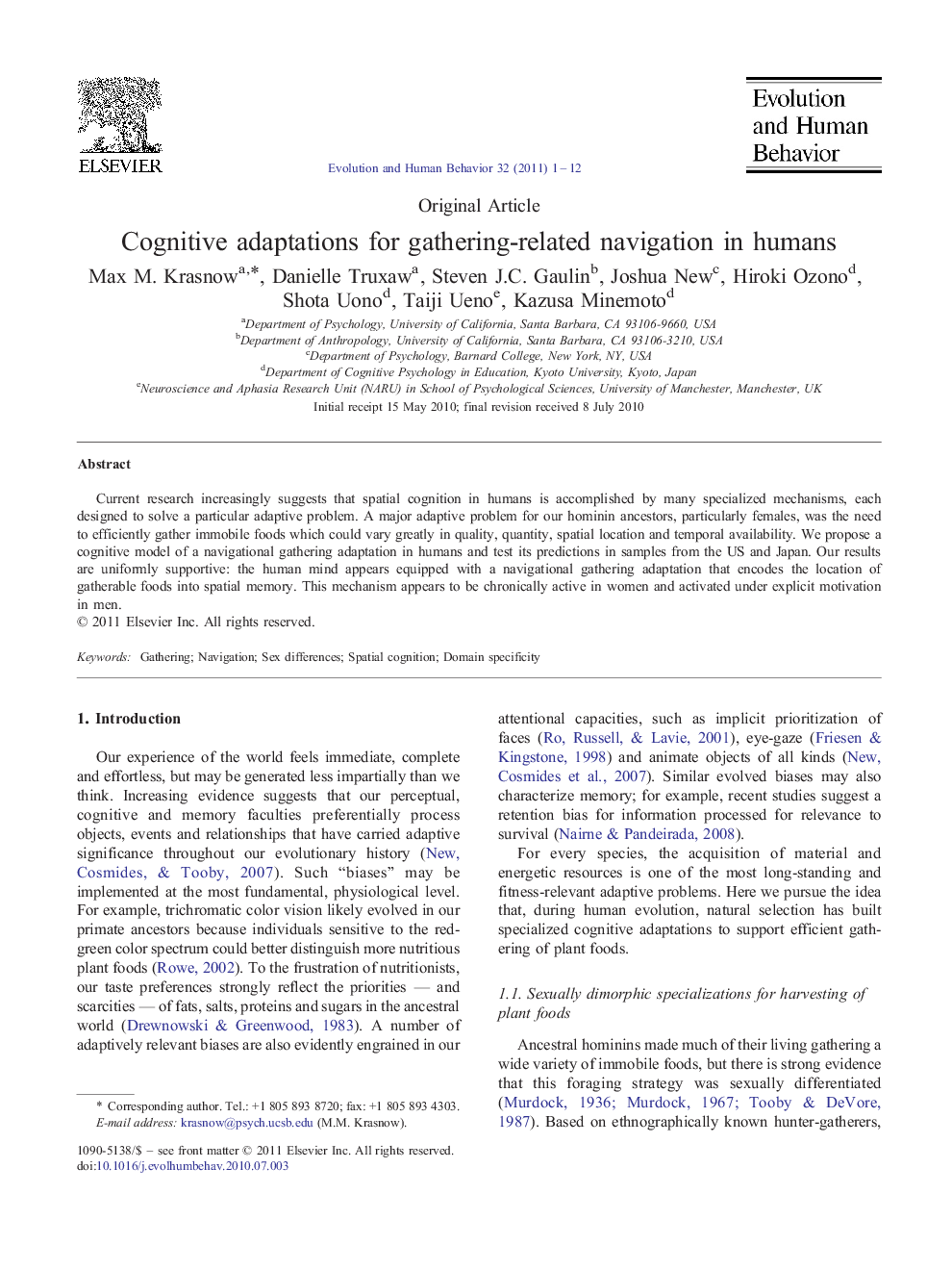| Article ID | Journal | Published Year | Pages | File Type |
|---|---|---|---|---|
| 943358 | Evolution and Human Behavior | 2011 | 12 Pages |
Current research increasingly suggests that spatial cognition in humans is accomplished by many specialized mechanisms, each designed to solve a particular adaptive problem. A major adaptive problem for our hominin ancestors, particularly females, was the need to efficiently gather immobile foods which could vary greatly in quality, quantity, spatial location and temporal availability. We propose a cognitive model of a navigational gathering adaptation in humans and test its predictions in samples from the US and Japan. Our results are uniformly supportive: the human mind appears equipped with a navigational gathering adaptation that encodes the location of gatherable foods into spatial memory. This mechanism appears to be chronically active in women and activated under explicit motivation in men.
